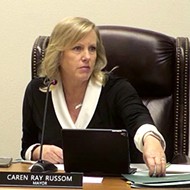[{
"name": "Ad - Medium Rectangle CC01 - 300x250",
"id": "AdMediumRectangleCC01300x250",
"class": "inlineCenter",
"insertPoint": "8",
"component": "2963441",
"requiredCountToDisplay": "12"
},{
"name": "Ad - Medium Rectangle LC01 - 300x250",
"id": "AdMediumRectangleCC01300x250",
"class": "inlineCenter",
"insertPoint": "18",
"component": "2963441",
"requiredCountToDisplay": "22"
},{
"name": "Ad - Medium Rectangle LC09 - 300x250",
"id": "AdMediumRectangleLC09300x250",
"class": "inlineCenter",
"insertPoint": "28",
"component": "3252660",
"requiredCountToDisplay": "32"
}]
When Robert Scott Sproston was arrested on suspicion of driving under the influence on Sept. 15, 2012, a breath test showed he had a Blood Alcohol Content of .21, well over the legal driving limit and just enough to earn him a special enhancement with more than the usual jail time, according to prosecutors. Sproston’s attorney, however, recently moved to have the evidence suppressed, claiming Pismo Beach police officer William Garrett—now retired—failed to offer Sproston his rightful options and advise him of the potential benefits a blood test could have provided in court.
The attorney, Scott Whitenack, told New Times he intends to prove that Garrett’s conduct represents an intentional and systematic effort on the part of the Pismo Beach Police Department to sidestep search and seizure laws and due process, an effort that would justify a civil suit for violation of the Racketeering Influenced and Corrupt Organizations (RICO) Act, which is traditionally used to bring down mob bosses.
While the results of Breathalyzer tests are admissible in court, the hard evidence—the breath itself—vanishes immediately into thin air. Blood and urine, on the other hand, can be saved and reviewed, giving defendants in drunk driving cases the chance to challenge field readings.
California law requires police officers to give suspected drunk drivers the option of taking breath or fluid tests to determine their blood alcohol content and to note the potential benefits of going the fluid route. It’s called a Trombetta advisement, and Whitenack said officers often view Trombetta as a minor technicality.
In a way, it is. Case law allows judges to forgive single instances where officers fail to preserve potential evidence, unless a defendant can show bad faith on the part of police.
On the witness stand, Garrett testified Dec. 12, 2012, that he’s never gone through any training on Trombetta and was under the impression that the advisement was optional.
“In the nine years that I’ve done DUI investigations and all the arrests that I’ve done, I’ve only read the Trombetta advisement one time to a person,” Garrett said on the stand. “And that’s the only time I’ve ever heard the Trombetta advisement used by myself or any other officer.”
Pismo PD Chief Jeffrey Norton said his department has policies in place to ensure that suspects are fully aware of their rights. Norton said that before Garrett retired on Dec. 31, 2012, he was renowned in the department for his drunk driving stats and had won awards from Mothers Against Drunk Driving. Norton said he wasn’t aware of the ongoing court case and hadn’t heard any personnel complaints against Garrett.
“You’re breaking news to me,” he said.
The paperwork that Pismo officers fill out for arrests includes a checkbox for Trombetta, but Garrett, since he never read the advisement, said he always left the box blank. He testified he was unsure whether or not his superiors were aware of his personal conduct during DUI arrests, but they never reprimanded him over Trombetta, which Whitenack believes shows a systematic and deliberate disdain for due process.
Deputy District Attorney David Paxton responded by noting that Garrett might have failed to explain how blood evidence could help a suspect in court, but he did offer Sproston the option of a blood test, which would have provided similarly re-testable chemical evidence.
“They basically rationalized it by saying evidence isn’t repressed, so what’s the big deal,” Whitenack said. “Well, the big deal is the Fourth Amendment.”
Judge John Trice was scheduled to issue a ruling on the motion to suppress evidence on Jan. 16, but the matter was postponed until March 13.
Latest in News
Readers also liked…
-

Coast Unified teachers upset over new position's salary and qualifications
Oct 20, 2022 -

SLO police identify alleged driver who hit and killed couple
Dec 22, 2022 -

When the levee breaks: Oceano residents, county officials walk a tightrope of regulations to manage Arroyo Grande Creek, which some say led to the levee's failure in January
May 18, 2023








